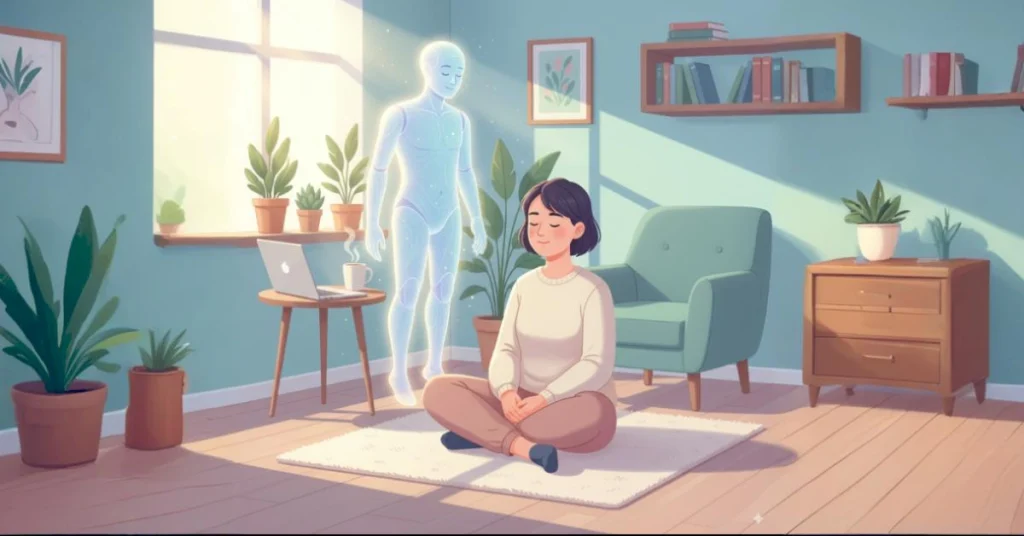Introduction
Stress is everywhere. Students up late staring at screens. Parents running from deadlines to dinner to laundry. Professionals living off caffeine and calendar reminders. It piles up.
Burnout doesn’t arrive all at once. It creeps. A few nights of poor sleep. A headache that lingers. That uneasy feeling before a meeting. Most people balancing work, family, or studies know it well, tired, stretched, but still managing. That’s the reality. And it’s exactly where TinyBit’s emotion-centric AI companion is meant to fit in. Not as a cure, not instead of therapy, but as something steady to lean on in the middle of daily chaos.
Mood Check-ins That Actually Mean Something
Most of us say “I’m fine” out of habit. But how often is that true? TinyBit changes the script. Each day, it asks: what’s your mood today?
Type a word. Tap an emoji. Write a full thought if you want. The app listens. Then, slowly, it starts showing you the patterns you’ve been missing.
Maybe Mondays are always heavier. Maybe evenings lift once you get a short walk. Instead of carrying it all in your head, you see it mapped out. That alone can be a relief.
Small Things That Break the Cycle
Stress isn’t solved by a grand plan. It’s the tiny breaks that matter.
TinyBit offers:
- A quick guided meditation you can follow right at your desk.
- A simple reminder, drink water, stretch, take a breath.
- Simple games to pull you out of the spiral of overthinking.
No complicated routine. No judgment if you skip a day. Just tools you can pick up when you need them.
And here’s the thing: when you actually use them, even briefly, the effect stacks up. Taking a two-minute break in the afternoon might not seem important. But across a week, it lowers that background noise of stress. You’re less snappy with colleagues. Bedtime comes easier. The difference is subtle until you notice you’re not as drained as before.
Emotional Health and the Body: The Overlooked Link
People often treat mental health and physical health as separate, but they rarely are. Stress doesn’t just stay in the mind. It shows up in your body, headaches, tense shoulders, stomach trouble, restless nights.
TinyBit leans on that connection. By helping you spot stress patterns early, it indirectly supports physical wellbeing too. Imagine realizing that your “random” migraines line up with weeks of high anxiety. Or realizing you sleep better on days when you jot down your mood. That kind of awareness can gently steer you toward better habits without pressure or rules.
Building Awareness, Little by Little
There’s another piece that sneaks up on you. Awareness.
As the days pass, you notice. This is what drains me. This is what calms me. That recognition is powerful. You catch yourself before the stress tips over into burnout.
Over weeks, those little check-ins build resilience. Not in theory. In practice. And because the app doesn’t demand perfection, you’re free to treat it like a guide rather than an obligation.
Real People, Real Use
Here’s how it shows up in daily life:
- A student before exams, spending five minutes on guided breathing to calm nerves and stay focused.
- A working parent who takes short breaks between calls, keeping work stress from carrying into family time.
- A teenager who avoids wellness talks but likes mood tracking because it feels private and pressure-free..
- A professional who uses midday nudges to avoid skipping lunch, keeping energy steady through long meetings.
- An elderly caregiver who journals moods to notice when patience is running low, helping them avoid burnout while caring for someone else.
Different stories, same idea: a lighter mental load.
One parent described it best: “It’s like a quiet safety net. I don’t always notice it, but it stops me from slipping too far.” That’s not clinical language, but it’s honest. And that kind of honesty matters most.
Easy Things You Can Try Today
You don’t need an app to begin, here are a few small things you can do today:
- Set a quick reminder. Take a short break in the morning and again in the afternoon, breathe, stretch or step away from your screen for a couple of minutes.
- Name your mood once a day. It sounds simple, but giving it a word stops the cycle of “I’m fine” when you’re not.
- Look for small patterns. Did you sleep better after a walk? Was Tuesday more stressful than Wednesday? Tracking even briefly can reveal hidden trends.
- Allow yourself to skip sometimes. Self-care isn’t about being perfect. It’s about returning when you can.
TinyBit weaves these ideas into daily use, so they become habits instead of chores.
Why It Matters
Nobody expects an app to replace a doctor, counselor, or friend. That isn’t the point.
But having something that checks in, tracks the small shifts, and gives a nudge when you’re about to let things slide, can make daily life easier to manage. That’s the role TinyBit’s emotion-centric AI companion tries to play.
Some days you’ll lean on it heavily. Other days it’ll fade into the background. Either way, it’s there. Quiet, steady, helpful.
Not perfect. Not magic. Just steady. And sometimes steady is exactly what people need.




